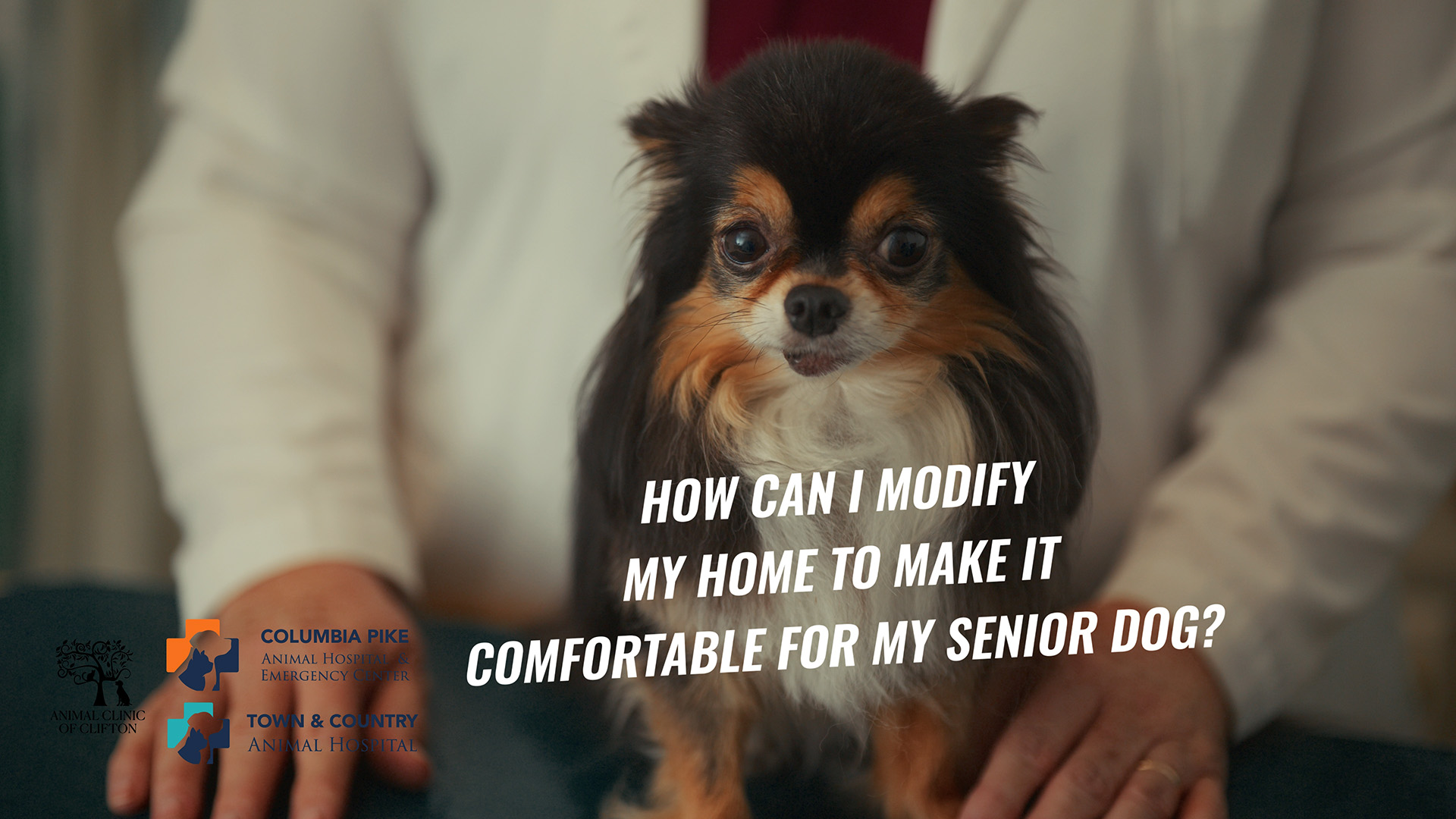Caring for an older dog brings unique challenges, but with the right support you can help your pet stay comfortable and happy in their golden years. In this second part of our Senior Dog Care series, Dr. Nancy Barnett shares practical advice on how to care for your senior dog at home and with your veterinarian’s help.
Weight Loss in Senior Dogs
While some muscle loss is natural as dogs age, noticeable weight loss should always be taken seriously. A reduced appetite or sudden changes in body condition are reasons to see your veterinarian for bloodwork. Underlying issues such as kidney disease, liver disease, or endocrine disorders can often be detected early through lab testing.
Nutrition and Supplements
Senior-specific diets are formulated to support the needs of aging pets. These foods may include antioxidants, joint support, or adjusted nutrients that help with digestion and absorption. If your pet needs additional support, supplements such as fatty acids can help keep their skin and coat healthy.
Creating a Safe Home
Mobility and vision changes are common in senior pets, but small adjustments around the house can help:
-
Place rugs or non-slip mats on slippery surfaces
-
Ensure pathways are clear and well lit
-
Limit stairs whenever possible
Even small changes make a big difference in keeping your pet safe and comfortable.
Hearing and Vision Changes
As hearing fades, recall becomes difficult. Senior dogs may not respond to calling or whistling, which increases the risk of wandering. Always keep them in sight when outside and provide safe spaces indoors. For dogs with vision loss, maintain familiar pathways and add lighting around stairs or darker areas to prevent accidents.
Recognizing Signs of Discomfort
Panting is a common sign of discomfort in senior dogs. While sometimes caused by heat, it can also indicate pain, stress, or disorientation. Keeping your pet cool in summer, warm in winter, and comfortable year-round helps ease this stage of life.
End-of-Life Considerations
It is never easy to face end-of-life care, but planning ahead helps your pet stay comfortable. Make their world smaller and easier to navigate by moving food, water, and resting spots to one level of your home. Your veterinarian can also recommend care to manage discomfort and maintain quality of life.
Preventive Care Still Matters
Vaccines and parasite prevention remain important throughout your dog’s life. Senior pets are often more vulnerable to the diseases these protect against, making preventive care a vital part of keeping them healthy.
Supporting Your Senior Dog
With a little extra care and attention, senior dogs can continue to enjoy their golden years with comfort and dignity.
Our Senior Wellness Plan makes proactive care easier and more affordable by including:
-
3 office visits (exams) per year
-
Comprehensive bloodwork
-
Parasite prevention
-
A $100 credit toward a non-emergency procedure
Ask our team how a Senior Wellness Plan can support your pet’s health.
📍 Columbia Pike Animal Hospital & Emergency Center
4205 Evergreen Lane, Annandale, VA 22003
📞 (703) 256-8414
💻 www.columbiapikeanimalh.com


